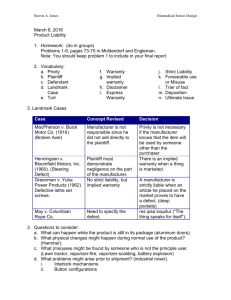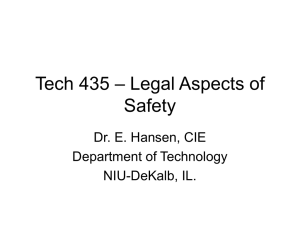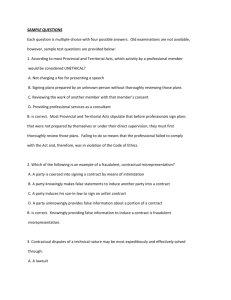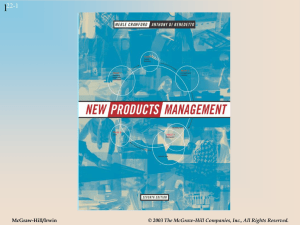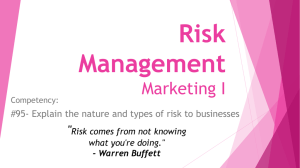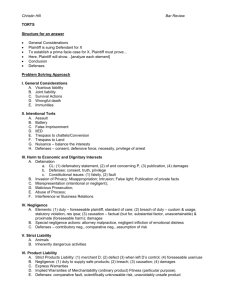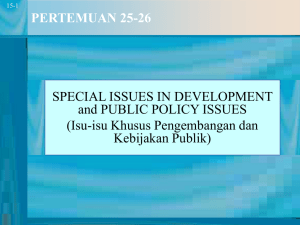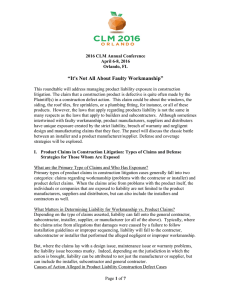A Few Basics About Product Liability Claims
advertisement
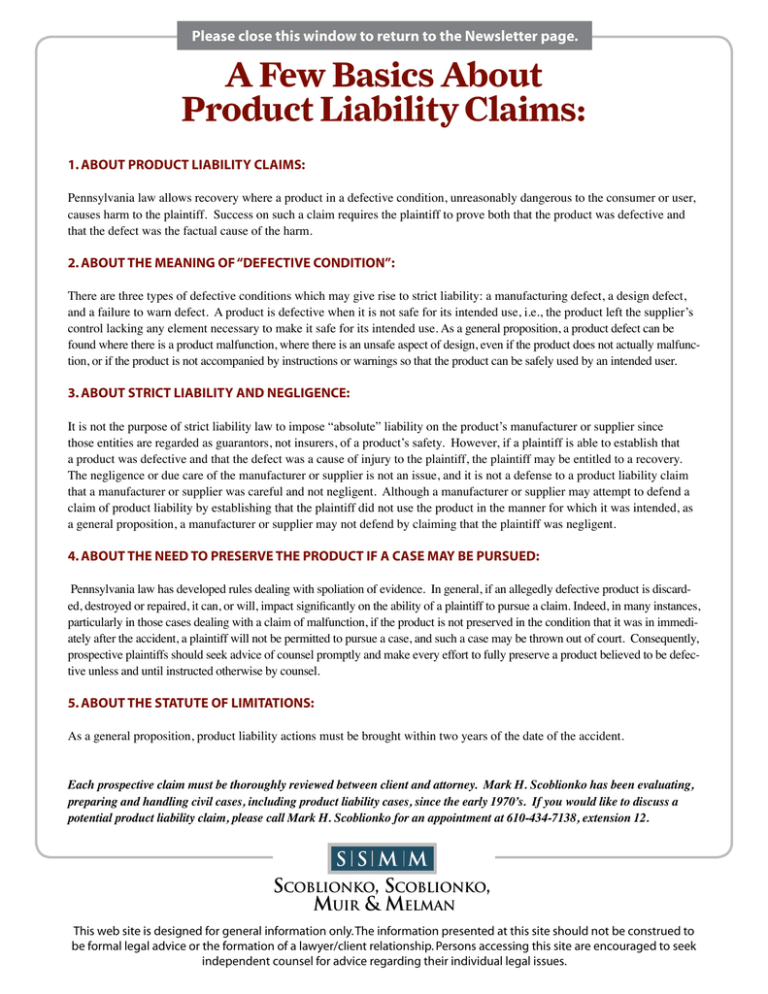
Please close this window to return to the Newsletter page. A Few Basics About Product Liability Claims: 1. ABOUT PRODUCT LIABILITY CLAIMS: Pennsylvania law allows recovery where a product in a defective condition, unreasonably dangerous to the consumer or user, causes harm to the plaintiff. Success on such a claim requires the plaintiff to prove both that the product was defective and that the defect was the factual cause of the harm. 2. ABOUT THE MEANING OF “DEFECTIVE CONDITION”: There are three types of defective conditions which may give rise to strict liability: a manufacturing defect, a design defect, and a failure to warn defect. A product is defective when it is not safe for its intended use, i.e., the product left the supplier’s control lacking any element necessary to make it safe for its intended use. As a general proposition, a product defect can be found where there is a product malfunction, where there is an unsafe aspect of design, even if the product does not actually malfunction, or if the product is not accompanied by instructions or warnings so that the product can be safely used by an intended user. 3. ABOUT STRICT LIABILITY AND NEGLIGENCE: It is not the purpose of strict liability law to impose “absolute” liability on the product’s manufacturer or supplier since those entities are regarded as guarantors, not insurers, of a product’s safety. However, if a plaintiff is able to establish that a product was defective and that the defect was a cause of injury to the plaintiff, the plaintiff may be entitled to a recovery. The negligence or due care of the manufacturer or supplier is not an issue, and it is not a defense to a product liability claim that a manufacturer or supplier was careful and not negligent. Although a manufacturer or supplier may attempt to defend a claim of product liability by establishing that the plaintiff did not use the product in the manner for which it was intended, as a general proposition, a manufacturer or supplier may not defend by claiming that the plaintiff was negligent. 4. ABOUT THE NEED TO PRESERVE THE PRODUCT IF A CASE MAY BE PURSUED: Pennsylvania law has developed rules dealing with spoliation of evidence. In general, if an allegedly defective product is discarded, destroyed or repaired, it can, or will, impact significantly on the ability of a plaintiff to pursue a claim. Indeed, in many instances, particularly in those cases dealing with a claim of malfunction, if the product is not preserved in the condition that it was in immediately after the accident, a plaintiff will not be permitted to pursue a case, and such a case may be thrown out of court. Consequently, prospective plaintiffs should seek advice of counsel promptly and make every effort to fully preserve a product believed to be defective unless and until instructed otherwise by counsel. 5. ABOUT THE STATUTE OF LIMITATIONS: As a general proposition, product liability actions must be brought within two years of the date of the accident. Each prospective claim must be thoroughly reviewed between client and attorney. Mark H. Scoblionko has been evaluating, preparing and handling civil cases, including product liability cases, since the early 1970’s. If you would like to discuss a potential product liability claim, please call Mark H. Scoblionko for an appointment at 610-434-7138, extension 12. S S M M SCOBLIONKO, SCOBLIONKO, MUIR & MELMAN This web site is designed for general information only. The information presented at this site should not be construed to be formal legal advice or the formation of a lawyer/client relationship. Persons accessing this site are encouraged to seek independent counsel for advice regarding their individual legal issues.
